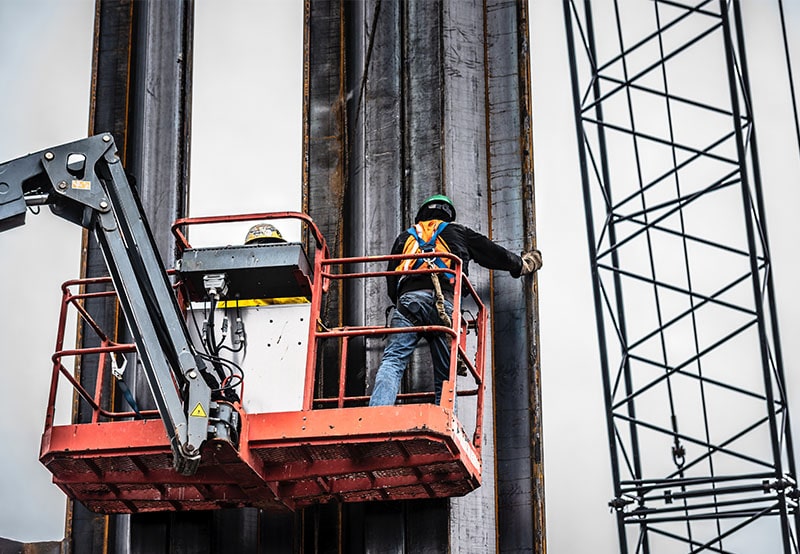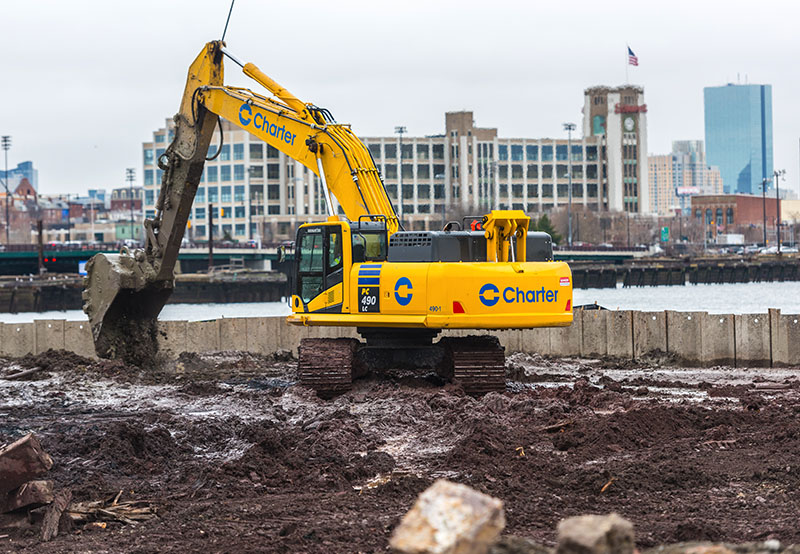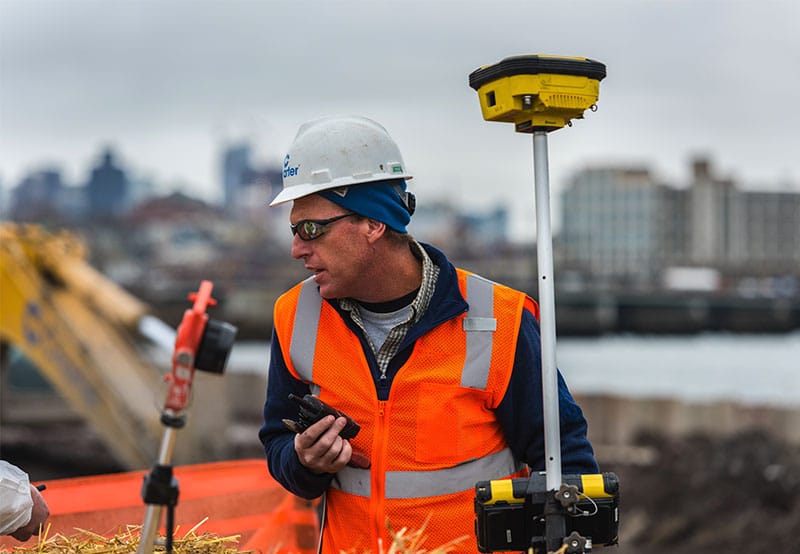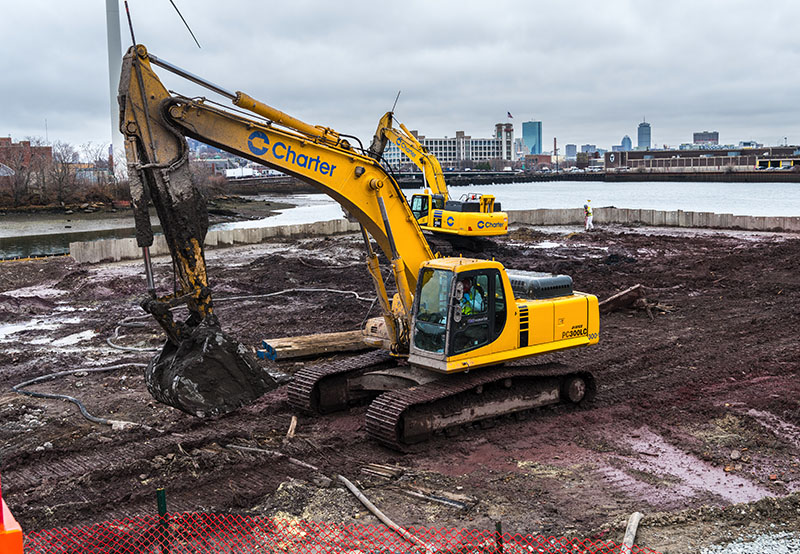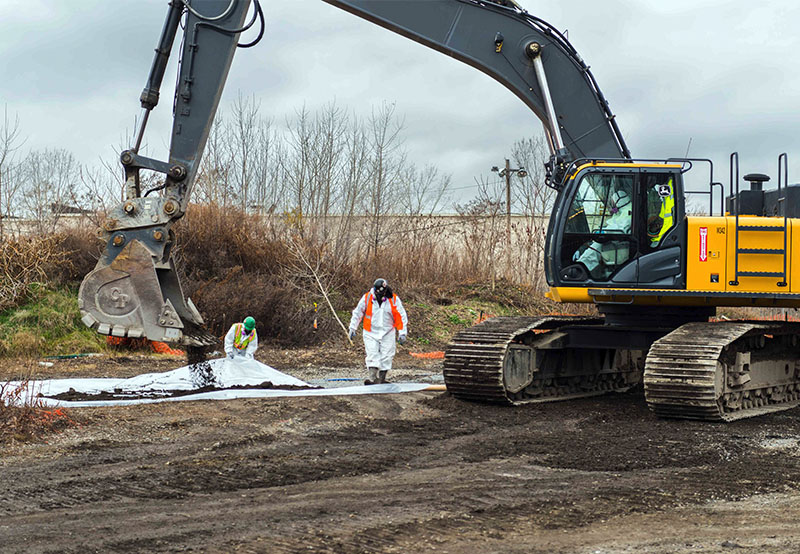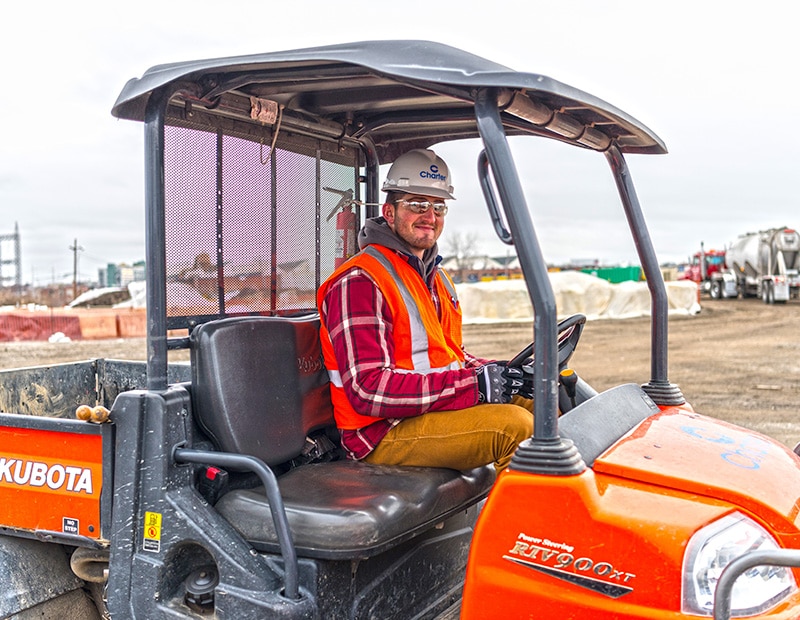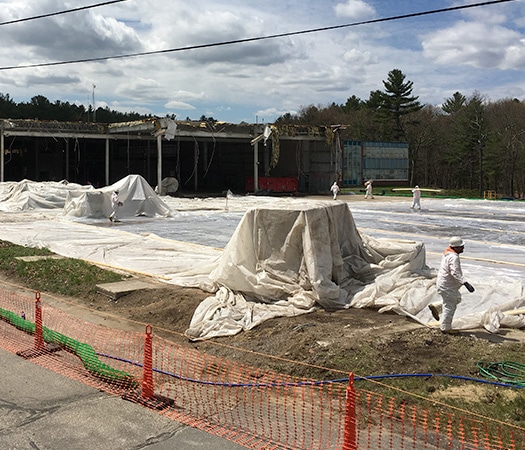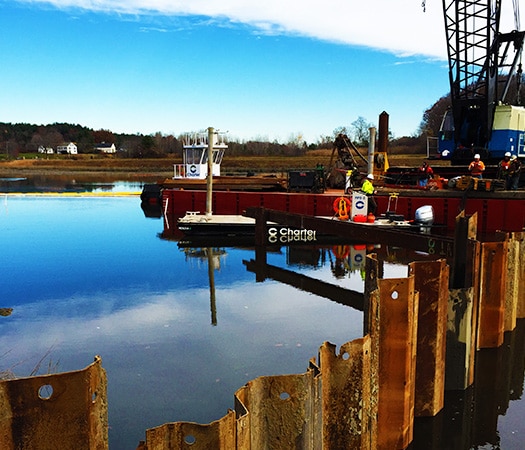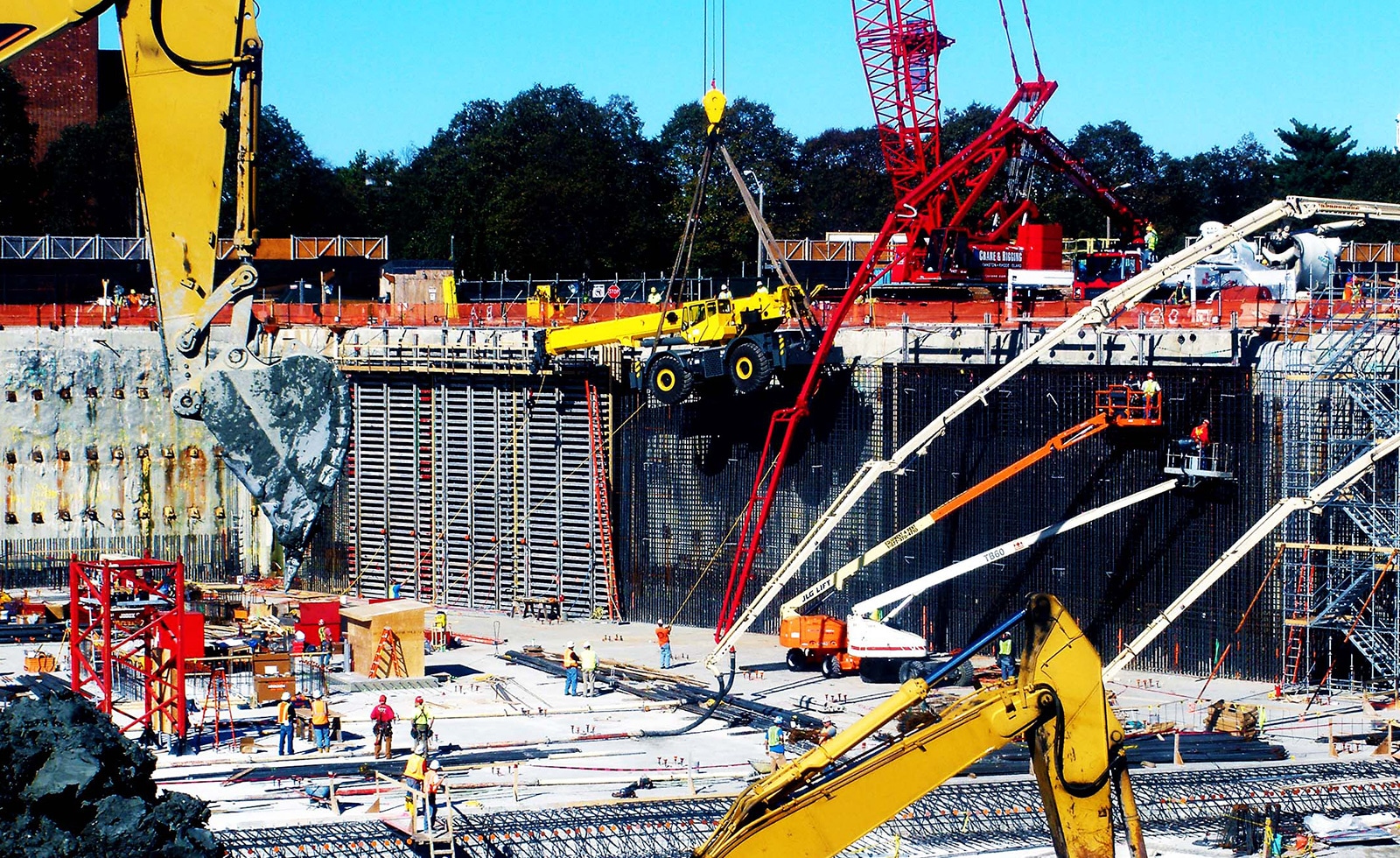- Wynn, MA LLC
- Commercial
- Everett, MA
Project Overview
Along the Mystic River in Everett, MA, the waterfront had been contaminated from a history of industrial use dating back to the 1800’s. In 2015 Wynn Development bought the land to develop a luxury resort and casino. However, before the project could move forward with, the 22-acre site needed to undergo an intensive remediation process to remove a host of contaminants.
Charter received the Phase 1 Remediation contract which consisted of three areas of concern with varying complex means and methods to accomplish the remediation. Charter completed work on the site in 2016 and the casino, which will be the largest privately funded construction project in MA, is on track to open in 2019. A project of this scale brought with it the public eye and the project team took great care to ensure impact on the public was minimal.
Complex Means and Methods
The 22-acre site situated along Everett’s Mystic River consisted of three distinct work areas, A-5 Area, CES-2 Area, and Low pH Area, that each required their own means and methods to successfully remediate the site.
The first of the three areas, A-5, while the smallest was also the most complex. The area contained an underground oil filled 115 kv electric line. The line, which was surrounded by several different contaminants, needed to be supported across an 80’ span to perform the adjacent 12’ deep excavation. TSCA/RCRA regulated soils were excavated from the area and treated to stabilize metals prior to disposal.
The CES-2 area was directly along the Mystic River Basin, causing a tidal influence on the area. The excavation in this area, which involved removing and treating lead and arsenic RCRA hazardous soils, was performed in the dry. This was accomplished by installing sheet pilling 40’ deep and utilizing a 200gpm onsite dewatering and treatment system. Discharge from the system flowed into a half acre onsite infiltration system.
The largest of the three areas, Low pH, was also adjacent to the river and required sheeting up to 21’ deep to act as a barrier to the water. In-situ soil stabilization (ISS) of 19,000 cy of low pH soil was performed by using an onsite batch plant. The batch plant generated a cement slurry and was mixed with onsite soils by using excavators and traditional buckets up to a depth of 11’. Throughout the process there was quality control testing.
Back to all